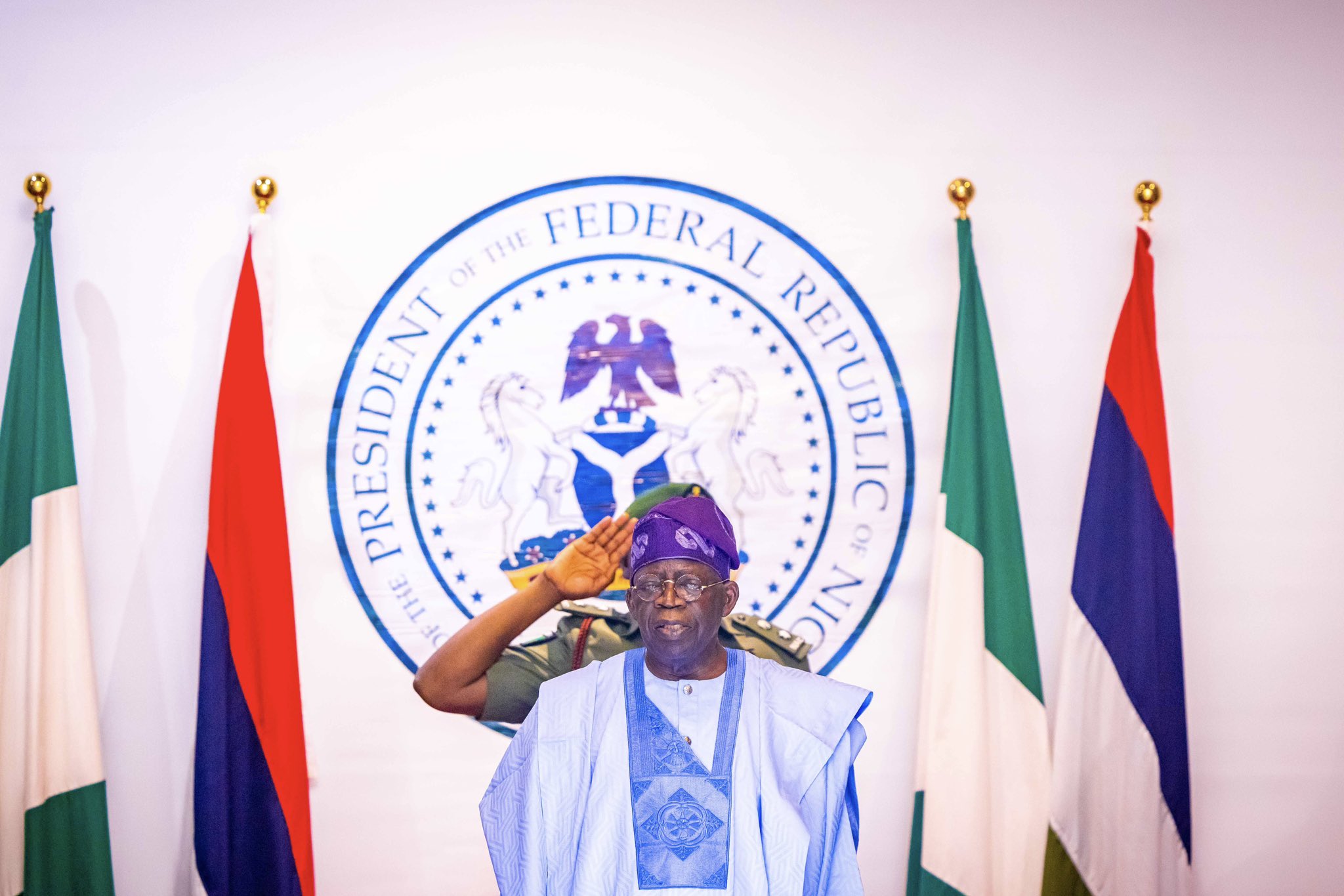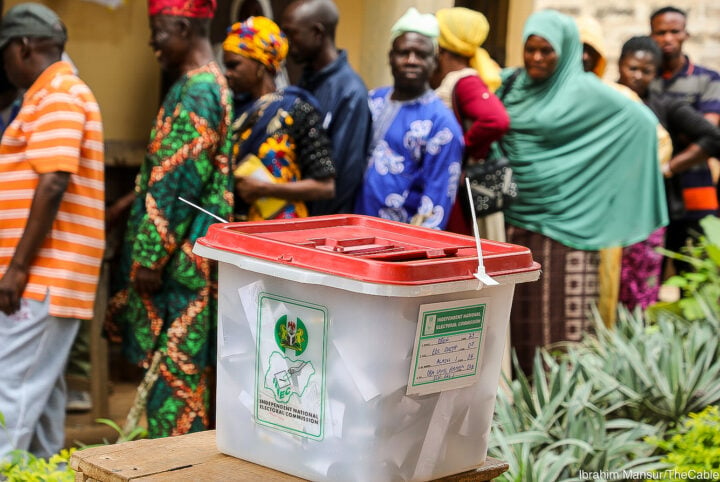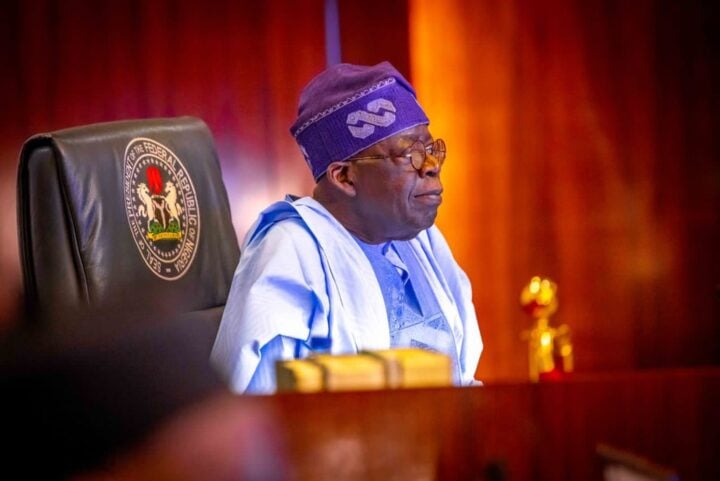BY OYEWALE OYELOLA
President Bola Ahmed Tinubu’s newly established policy advisory council (PAC) marks a crucial pivot towards a modern and inclusive style of governance in Nigeria. As Nigeria’s political terrain gradually adjusts to the seismic shift, the promise of greater gender equality, youth participation, and technocratic governance is more evident than ever. The composition of the PAC, with a high representation of young people, women, and seasoned technocrats, is a clear indicator of the direction President Tinubu’s yet-to-be-named cabinet and administration will take.
While seasoned politicians and party loyalists such as Wale Edun, Babatunde Fashola, Hadiza Bala-Usman, Ben Ayade, Gboyega Oyetola, Abubakar Bagudu, Ben Akabueze, and Dave Umahi among others, are expected to occupy key ministerial positions, there is a strong indication that the remaining ministerial slots and key agencies of government will be filled by young technocrats and women. One cannot help but admire the balanced mix of political experience and technocratic expertise, which is essential for the nuanced decision-making required in governance.
A surprise inclusion on the ministerial list could be Nyesom Wike, the erstwhile Rivers state governor. His potential inclusion is a strong signal of President Tinubu’s willingness to cross party lines and select the best and most competent individuals to bring his vision for Nigeria to life.
Advertisement
The PAC includes many accomplished industry leaders such as Olu Verheijen, Austin Avuru, AbdulRasaq Isa, Bashir Bello, Ifeanyi Ajuluchukwu, Doyin Akinyanju, Tinuade Sande, Ahmad Zakari, George Etomi, Nasiru Wada, Mohammed Abbas, Segun Lawson, Aisha Augie-Kuta, Barrister Ismael Ahmed, Oluwaseun Faleye, Salma Anas Ibrahim, Jide Idris, Nabila Aguele, Asuquo Ekpenyong, Ibrahim Oloriegbe, Dupe Olusola, Tunji Alausa, Temi Awigboro, Ayobami Olunloyo, Biola Alabi, Prof Jubril Munzali, Kola Masha, Terfa Tilley-Gyado, Tola Odeyemi-Fashola, and Dr. Doris Anite. These individuals’ various achievements and contributions to their respective fields are undeniable, and their inclusion in the PAC provides a promising blueprint for President Tinubu’s government.
The PAC’s formation months before the May 29 inauguration also demonstrates an unprecedented level of preparedness by the incoming administration. This readiness to govern signifies a clear break from past administrations’ reactionary governance style, marking a shift towards a proactive, strategic, and policy-driven approach to governance. The PAC’s terms of reference are a testament to this new style of governance.
The importance of women’s and young people’s representation in these areas cannot be overstated. They bring fresh perspectives and innovative approaches to problem-solving, which are crucial for navigating the complex challenges Nigeria faces. Moreover, their inclusion serves as an empowering message to other young people and women that their voices matter, and their contributions are essential to national development.
Advertisement
Notably, the women affairs and social development sub-committee is set to advance gender equity and equality in policy development and implementation and propose a quota system for political and policy appointments for women. This is a monumental stride towards correcting the gender imbalance in Nigerian politics.
Moreover, the presence of the science, technology, and digital economy sub-committee, which aims to train and empower Nigeria’s youthful population to seize opportunities in science and technology, provides a promising vision for youth engagement.
Also very interesting, and perhaps most fundamental to our governing structure is the governance sub-committee tasked with the mandate to devise strategies to devolve more powers to the sub-national governments in order for states and local governments to be able to do more for the people. The recommendations of this sub-committee will have significant ramifications for setting Nigeria on the true path toward true and sustainable federalism.
President Tinubu’s commitment to gender equality, youth inclusion, true federalism, and technocratic governance has never been more explicit. The PAC’s composition already underscores these commitments. Beyond that, the broad focus areas identified for the PAC’s sub-committees – from agriculture and water resources, national security, education, and energy and natural resources to women’s affairs and social development – clearly underscore a comprehensive and holistic approach to governance that seeks to address Nigeria’s diverse socio-economic challenges head-on.
Advertisement
It is also impressive to note that world-class external management consultants such as McKinsey, Deloitte, EY, KPMG, PWC, and Wood Mackenzie will be supporting the PAC’s project management office and sub-committees. This strategic move demonstrates President Tinubu’s resolve.
The composition of President Bola Ahmed Tinubu’s advisory council augurs well for Nigeria’s political future. It sets a precedent for a more inclusive and prepared governance system. This approach to leadership, if effectively implemented, is bound to yield significant results in the actualisation of the Renewed Hope action plan, ensuring a prosperous and inclusive Nigeria.
Oyelola is a lecturer in the Mass Communication Department of Federal Polytechnic Ado-Ekiti, Ekiti state
Advertisement
Views expressed by contributors are strictly personal and not of TheCable.
Add a comment






